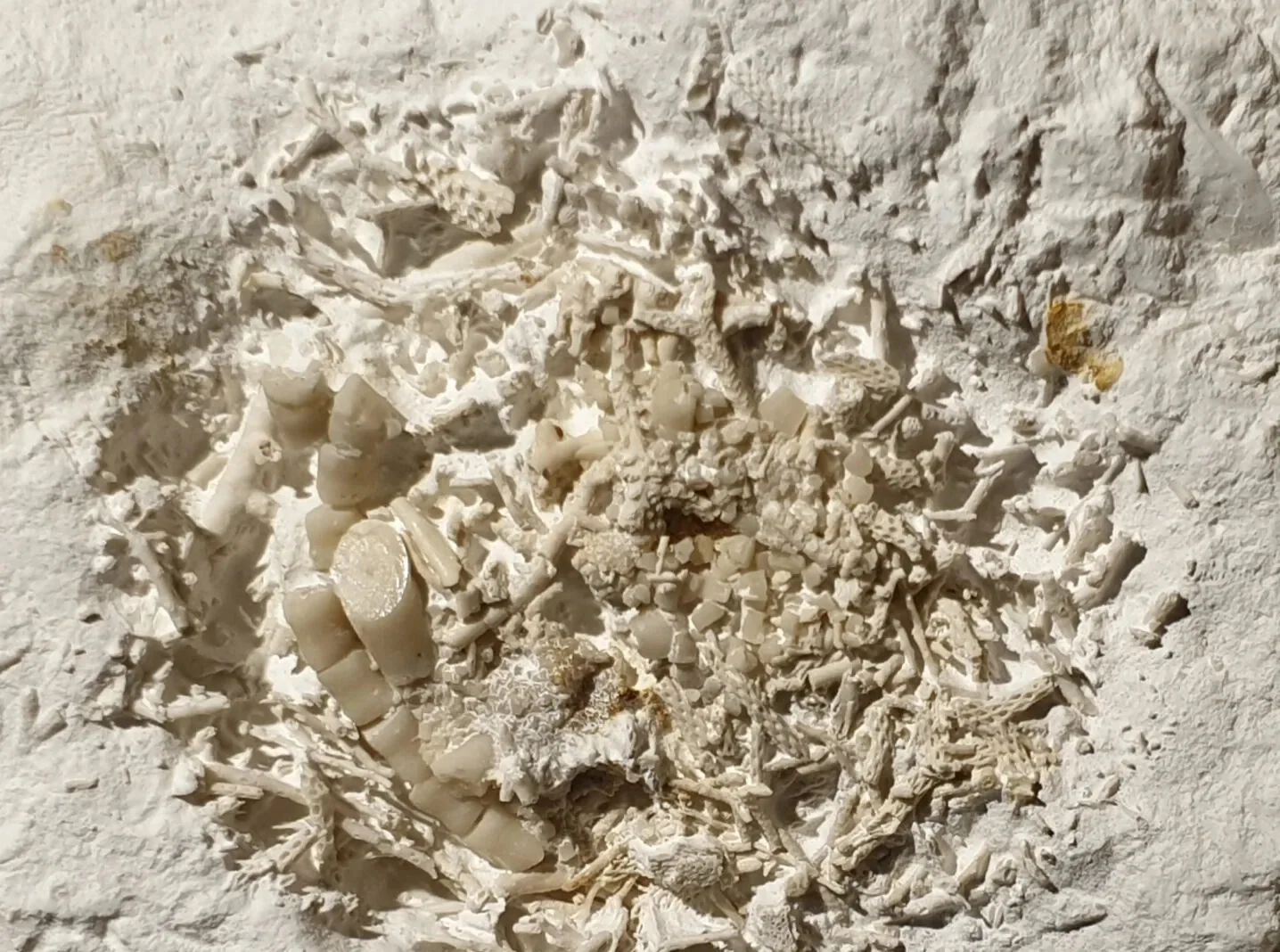A local fossil hunter exploring Stevns Klint on the Danish island of Zealand has discovered a rare blob of fossilised vomit, also known as regurgitalite.
Stevns Klint is a UNESCO World Heritage Site, renowned for its cliffs that have an exposed Cretaceous-Paleogene (K/Pg) boundary. This geological feature provides a complete fossil record of the biota in Northern Europe during the late Cretaceous and early Paleogene periods.
While splitting a piece of chalk, local fossil hunter, Peter Bennicke, discovered a fossilised cluster of sea lily fragments which have been identified as regurgitalite, the fossilised remains of stomach contents that have been regurgitated.
The discovery was brought to the Geomuseum Faxe, where researchers analysed the fragments and identified the remains of at least two different sea lily species. Experts suggest that the regurgitalite likely came from a type of fish that ate sea lilies on the bottom of the sea 66 million years ago.
At the time, Denmark was covered by an oxygen rich shallow sea, home to species of fish, squid, mussels, snails, sea urchins and sponges. Billions of microorganisms lived in the upper layers of the sea, whose calcareous shells now form the chalk cliffs of Stevns Klint.
Jesper Milàn, museum curator at Geomuseum Faxe and member of the Danish Wildlife Committee, explained the significance of the discovery: “It is a very unusual find. Sea lilies are not a particularly nutritious diet, as they mainly consist of calcareous plates held together by very few soft parts.”
According to the East Zealand Museum, the discovery offers valuable new insights into predator-prey relationships and the food chains of the Cretaceous sea. It sheds light on the ancient marine world and demonstrates the fascinating ways researchers can unravel the diets and behaviours of long-extinct creatures.
Header Image Credit : Sten Lennart Jakobsen
Sources : East Zealand Museum





